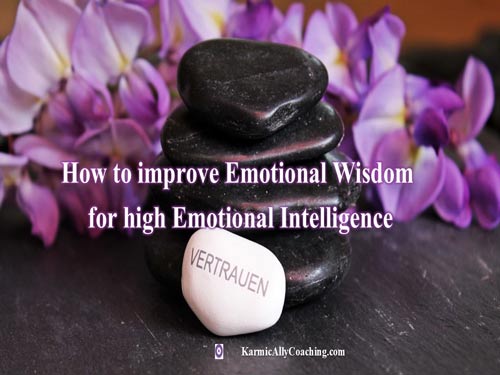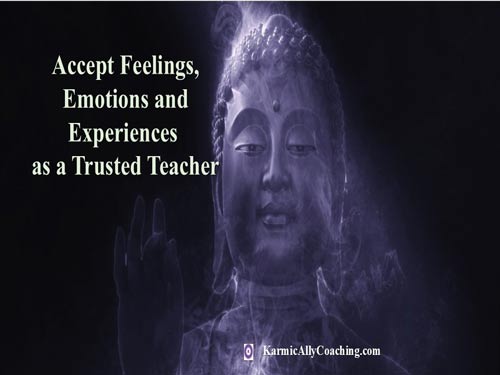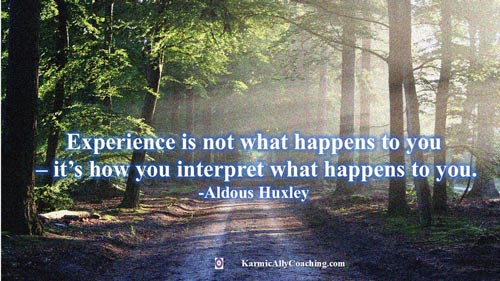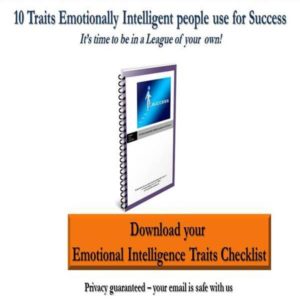This post has already been read 2216 times!

I recently found myself dealing with the acid test of demonstrating Emotional Intelligence to the remarks of someone who is not a friend or connection on a particular social media platform.
The topic was the alleged suicide by a well-known tycoon who was also known as the Coffee King of India.
Sometimes I think people post comments for the sake of it without pausing to consider the context of the post and I felt myself getting irritated when I read the comment “Lesson for all of us – Aspirations not to be mixed with happiness in life”.
Instead of going for his online jugular, I engaged in conversation to find out what he really meant. A few back and forth and this person admitted that use of the word aspiration was not the right fit for the situation and then articulated what he had really meant.
The dialogue ended on a cordial note with his liking my final comment on the topic. I got a fringe benefit of algorithm juice with my post being viewed by over 200 people at a time when the algorithms are undergoing a change and visibility is a challenge.
I also added to my Emotional Wisdom learning.
Accept Feelings Emotions and Experiences as a Trusted Teacher
Do you accept your feelings, emotions and experiences as a teacher to develop your Emotional Intelligence?
The ability to view situations with objectivity and understand ourselves and others requires using both our head and heart.
Our emotions, whether positive or negative serve us as a source of human energy, authenticity and drive offering us the opportunity to develop our intuition and emotional wisdom.

Emotional intelligence requires that we learn to acknowledge and understand feelings – in ourselves and others – and that we appropriately respond to them, creatively applying the energy of the emotions to our daily life, work and relationships.
What is emotional wisdom?
Emotional wisdom is the collective knowledge and experience that result from having lived a life of emotional diversity.
You obtain emotional wisdom by learning from past mistakes and taking that which you’ve learned into the future with you. It is give-and-take – you receive the experiences and decide what serves you the best to remember and use in the future.
Emotional wisdom doesn’t mean that we suppress our negative feelings and pretend that we are okay with things.
For example, if a boss, friend or spouse says or does something that upsets us, it’s natural to feel angry and take action that might be counter-productive to control the situation like shouting or saying something in the heat of the moment that cannot be repaired with an apology or taken back.
A better way to handle this is to process the emotion that comes with the incident and decide with objectivity about a course of action that allows you to express your emotions in an appropriate way, conveys your message and make the other party understand the breach of boundaries.
Instead of bottling up the emotion and letting it fester inside you waiting to come out at a later date in a worse and out of context form, call the other person out with statements like “what you said is hurtful or hurt me”.
Back it up with information to the other person about what their conduct looks like. Coming from a place of calm and logic stumps anyone who is spoiling for a fight or wants to see you react. It also gives you a chance to let go of a little of that emotion that has settled inside you.
6 Ways to Get Grounded for Emotional Strength and Resilience
Your emotions can be tricky. Emotional instability will often cause immediate damage to you and those around you, as well as the future damage of burned bridges and ruined relationships.
Here are six ways to get grounded when you feel yourself becoming emotionally unstable. These tips will help you foster emotional resilience that will, in turn, allow you to become stronger, and more emotionally stable.
4 Steps to achieve greater Emotional Wisdom
Our emotions are continually giving us messages about what feels good and what doesn’t, what feels right and what feels wrong, what is acceptable and what isn’t, and the ultimate direction we should be going.
Our emotions tell us when things are great, or when they need to be improved.

These four steps will help you achieve greater emotional wisdom.
Listen – A huge part of developing emotional wisdom is in learning how to listen to and interpret the experiences we have. By listening to your emotions, you can gain a wide understanding of what’s going on inside you.
What’s going on inside you can affect your physical health and mental well-being, so it pays to listen carefully. Doing so will help you manage stress, which can manifest itself in many negative emotions.
In the case of my own example, I realized that while the comment that irritated me was goofy, it was not worth getting angry over it. The particular coffee chain is tied to many memories of meeting up with friends, sitting with my website designer when I first launched my business and even talking to clients.
I was sad about the fact that a self-made man who had researched coffee and created a niche brand long before Starbucks in India was driven to take a irreversible step.
Trust – Trust in your ability to feel and be felt, and interpret your emotions accurately. Trust that you can handle whatever emotions come your way – after all, you’re still here, aren’t you?
We are all much more capable than we tend to give ourselves credit for, so while you’re listening to your emotions, trust that what you’re hearing is the truth. Never second guess yourself when it comes to feeling. Whatever it is you are feeling is valid and worthy.
It was this trust that made me venture and engage with the other person in a rational manner.
Reflect – Your ability to look at your emotions realistically in relation to the situations with which they arise is important in developing your emotional wisdom. Notice we said reflect – not react.
As you are listening to your emotions, logically examine whether your emotion matches the situation that it came from. Often, we are used to telling ourselves stories regarding our emotions that simply aren’t true – they are just habits. Therefore, honest reflection is a truly valuable skill to possess.
Adjust – The ability to adjust your emotion to your present situation is a sign of true emotional wisdom. Like anything, this takes practice, but when you learn to properly interpret the messages your emotions send you, you can adjust as you feel necessary.
I feel the dialogue of expressing our views gave both the commenter and I a chance to understand the other person’s point of view and acknowledge each other by adjusting our stand that did not mean a compromise for either of us.
The bottom line is, true emotional wisdom comes from looking within and listening carefully to what we feel to give us clues that help us live healthier, happier, more productive lives because we are able to make the required adjustments while acknowledging the presence of feelings and emotions.




 I adhere to the Certified Coaches Alliance Code of Ethics and Standards. A copy is available on request.
I adhere to the Certified Coaches Alliance Code of Ethics and Standards. A copy is available on request.
 Let's Talk through the Connect Form:
Let's Talk through the Connect Form:
Love the inner ding- as we mature and trust those whispers we stop and listen before we react
Powerful thinking here and yes LISTEN is so important xx
Absolutely Suzie! We need to learn to trust those whispers that tell us to stop and listen.
I love these tips, Vatsala! All to often many people simply react in the moment instead of reflecting and acting for clearer understanding. You make it so simple! Thank you!
You’re always welcome, Kathleen!
Wonderful pearls of wisdom, Vatsala! Life’s events are our grandest teacher. It’s when we look within, listen, trust, reflect and adjust that we experience a healthier and happier life. May we all pause a moment before responding when emotionally charged. Thank you for the steps and reminders.
Thank you for sharing your insights and perspective Cindy.
Great tips, Vatsala! When we can pause before reacting there is a chance for greater dialogue, as you have demonstrated. Using emotional intelligence, we express our authentic self.
Thanks Lisa. It’s amazing how productive and insightful dialogues can happen if we can stop and count to 10 or even try to understand the other person’s position.
I have reached an age when I honor what Louise Hay called my “inner ding” and pay attention to who or what is either pushing my buttons or resonating with me big time.
Louise Hay was a great lady and I love her works, Barb. Thanks for sharing her guidance about the “Inner Ding”. I think we all need to become aware of ours.